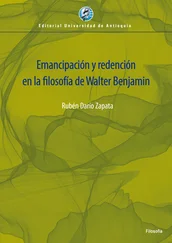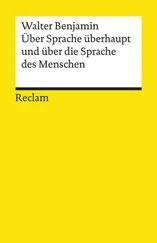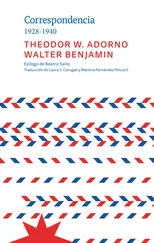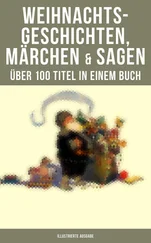MEPHISTOPHELES: I’ve served you for twenty-four years.
FAUST: But how is that possible? You changed the calendar?
MEPHISTOPHELES: No, that I can’t do. But listen to me carefully. You are demanding twelve more years.
FAUST: Indeed I am — our contract says four-and-twenty years.
MEPHISTOPHELES: Indeed it does, but we didn’t account for me serving you day and night. And you harried me day and night, so, add on the nights and you’ll see that our contract is coming to an end.
FAUST: Father of all lies! You’ve betrayed me.
MEPHISTOPHELES: No, you have betrayed yourself.
FAUST: Let me live just one more year.
MEPHISTOPHELES: Not even a day.
FAUST: Just one more month.
MEPHISTOPHELES: Not an hour longer.
FAUST: Just one more day, so I can take leave of my good friends. 9
But Mephistopheles has nothing more to say on the matter. He has served long enough: “We meet again at twelve o’clock.” And with these words he takes leave of Faust.
You can imagine the excitement and suspense when the audience suddenly sees Hanswurst enter the puppet stage, slow and steady as a night watchman, leisurely calling out the top of each hour. Three times.
“Listen all and count alike, now the clock doth ten times strike,” and so on: the old German night watchman song.
Thus Faust has two more hours to live, two hours until twelve. In his final quarter of an hour he meets Hanswurst. So that, for all his mistakes, we don’t feel sorry for Faust when the devil finally comes for him, and so that we may palpably feel his utter desperation, the writer of the old puppet play has Faust try to save himself by means of a pathetic scam, which fails. Let’s hear how:
Hanswurst catches sight of Faust and says: “Well, good evening, my dear Sir Faust, good evening. Still out on the street?”
FAUST: Why yes, my servant, I haven’t a moment’s peace, on the street or at home.
HANSWURST: And rightly so. You see, I’m having a rough go of it myself at the moment — and you still owe me last month’s pay. Be so kind as to give it to me now — I really need it.
FAUST: Alas, my servant, I have nothing — the devil has made me so poor, I don’t even own myself anymore. ( Aside .) I must try to use this fool to wrest myself free from the devil. ( To outwit Hanswurst .) Yes, my dear servant, although I have no money, I’d hate to leave this world without first paying you. Here’s what I propose: take off your clothes and put on mine. That way you get your payment and I lose my debt.
HANSWURST ( shaking his head ): Oh no, then the devil would be likely to nab the wrong guy. No, before any great mistake occurs, I’d prefer just to forget the money. And in exchange, you can do me a favor.
FAUST: Gladly, what is it?
HANSWURST: Say hello to my grandmother. She’s in hell number eleven, just to the right when you walk in.
Hanswurst hurries off. We hear him singing from behind the stage:
Listen all and count alike,
now the clock doth twelve times strike.
Guard the fire and guard the coal
The devil comes for Dr. Faust’s soul. 10
The clock strikes twelve, and with thunder, brimstone, and lightning, an entire company of devils emerges from hell to fetch Faust.
Goethe saw this puppet play as a young boy. He began composing Faust before he was thirty years old, and he was eighty when he finished writing it. His Faust similarly made a pact with the devil, and the devil also comes to fetch him at the end. But in the 250 years between the appearance of the first Faust book and the completion of Goethe’s Faust, mankind had changed. More and more, it was understood that what had previously drawn people to magic was often not greed, depravity, or sloth, but rather thirst for knowledge and elevation of mind. Goethe demonstrated this in his Faust , forcing the devil to retreat at last before a legion of angels filling the entire stage.
“Dr. Faust,” GS, 7.1, 180–8. Translated by Jonathan Lutes.
Broadcast on Radio Berlin on January 30, 1931, and on Southwest German Radio, Frankfurt on March 28, 1931. The Funkstunde announced the Berlin broadcast for January 30, 1931 from 5:30–5:50 pm. In Frankfurt, the Südwestdeutsche Rundfunk-Zeitung advertised it for March 28, 1931, from 3:20–3:50 pm, under a variant title: “Youth Hour: ‘Der Zauberkünstler Dr. Faust’ [The Conjurer Dr. Faust] by Walter Benjamin, Berlin (for children ten years old and above).”
1Friedrich Neubauer was the author of the history textbook, Lehrbuch der Geschichte für höhere Lehranstalten [History Textbook for Higher Learning], (Halle: Verlag der Buchhandlung des Waisenhauses, 1897).
2The first “Faust Book,” Historia von D. Johann Fausten, was compiled anonymously and published in 1587 in Frankfurt by Johann Spieß. Many subsequent retellings were to follow. The date of 1599 suggests the Hamburg edition by Georg Rudolf Widmann.
3For a similar passage, see Das Volksbuch vom Doktor Faust. Nach der ersten Ausgabe, 1587 [The first Faust Book, based on the edition of 1587], ed. Robert Petsch (Halle: Max Niemeyer, 1911), 144–5.
4Modified by Benjamin from Das Puppenspiel vom Doktor Faust (Leipzig: Höfer, 1914), 5–6.
5See Luther, Tischreden (1566), in Martin Luthers Werke: Kritische Gesamtausgabe: Tischreden, vol. 1 (Weimar: Hermann Böhlaus Nachfolger, 1912), no. 1059, 534–5.
6The Zimmern Chronicle, quoted in Johann Scheible, Das Kloster, vol. 5: Die Sage vom Faust (Stuttgart: J. Scheible, 1847).
7This translation is from Goethe, Faust I, trans. Peter Salm (New York: Bantam, 1985), lines 1238–48, 77–9.
8Hanswurst, a traditional jester character in German-speaking comedy and a predecessor figure for Kasper (see “Berlin Puppet Theater”), appears in the seventeenth- and eighteenth-century German puppet plays based on the story of Dr. Faust.
9See Das Puppenspiel vom Doktor Faust , 60–1.
10Ibid., 65–6.
Today I want to tell you about a great swindler. By great I mean not only that the man was hugely unconventional and brazen in his swindling, but also that he carried it out flawlessly. His prowess for fraud made him famous across all of Europe; he was revered by tens of thousands, almost as a saint; during the years 1760 to 1780, his portrait could be found everywhere — on engravings, paintings, busts. He performed his séances, miracle cures, alchemies, and rejuvenation treatments in the so-called Age of Enlightenment. This was an epoch when, as you know, people were particularly skeptical of all forms of irrational tradition, claimed to want to follow only their own free minds, and, in short, should have been especially well protected from men such as this Cagliostro. At the end of the broadcast we’ll say a few words about how he managed to be so successful in spite of this, or rather because of it.
To this day no one knows exactly where Cagliostro came from, but one thing is certain: he did not come from where he claimed he did, namely Medina, or, for that matter, anywhere in the Orient; most likely he hailed from Italy, or perhaps Portugal. Of Cagliostro’s youth, one thing is clear: he was first trained as a pharmacist while, on the side, he taught himself all sorts of useless skills such as grave digging, counterfeit handwriting, panhandling, and the like. He never lingered anywhere for too long. He ended his life just as he began it: as a wanderer. Of all his stops, none was more important than London, where he arrived for the first time around 1750. It was there that he learned of the Freemasons and was most likely admitted to the order. His experiences in London, the strange and mystical tests to which he was subjected — some of you are perhaps familiar with the “Magic Flute,” with its fire trial and water trial, two masonic rituals — left a lasting impression on his fantasy worlds and his works of imagination. Cagliostro’s life goal was to do something extraordinary with Freemasonry. The actual Freemasons were a society that had nothing at all to do with magic, instead pursuing goals that were part humanitarian and part political. These were closely related, as their political activities were directed against the vicious tyranny of many European rulers of the time, as well as, of course, against the pope. But these comparatively prosaic ambitions could not satisfy Cagliostro. He wanted to found a new Freemasonry, a so-called Egyptian Freemasonry, a sort of magic society whose laws he plucked out of thin air. Yet his goals were more ambitious. As opposed to the hostile approach of the real Freemasons, Egyptian Freemasonry was meant to treat the pope in a friendlier manner. Cagliostro wanted to reconcile the Freemasons with the pope, and thereby acquire, as the arbiter of these two forces, the highest power in Europe.
Читать дальше












